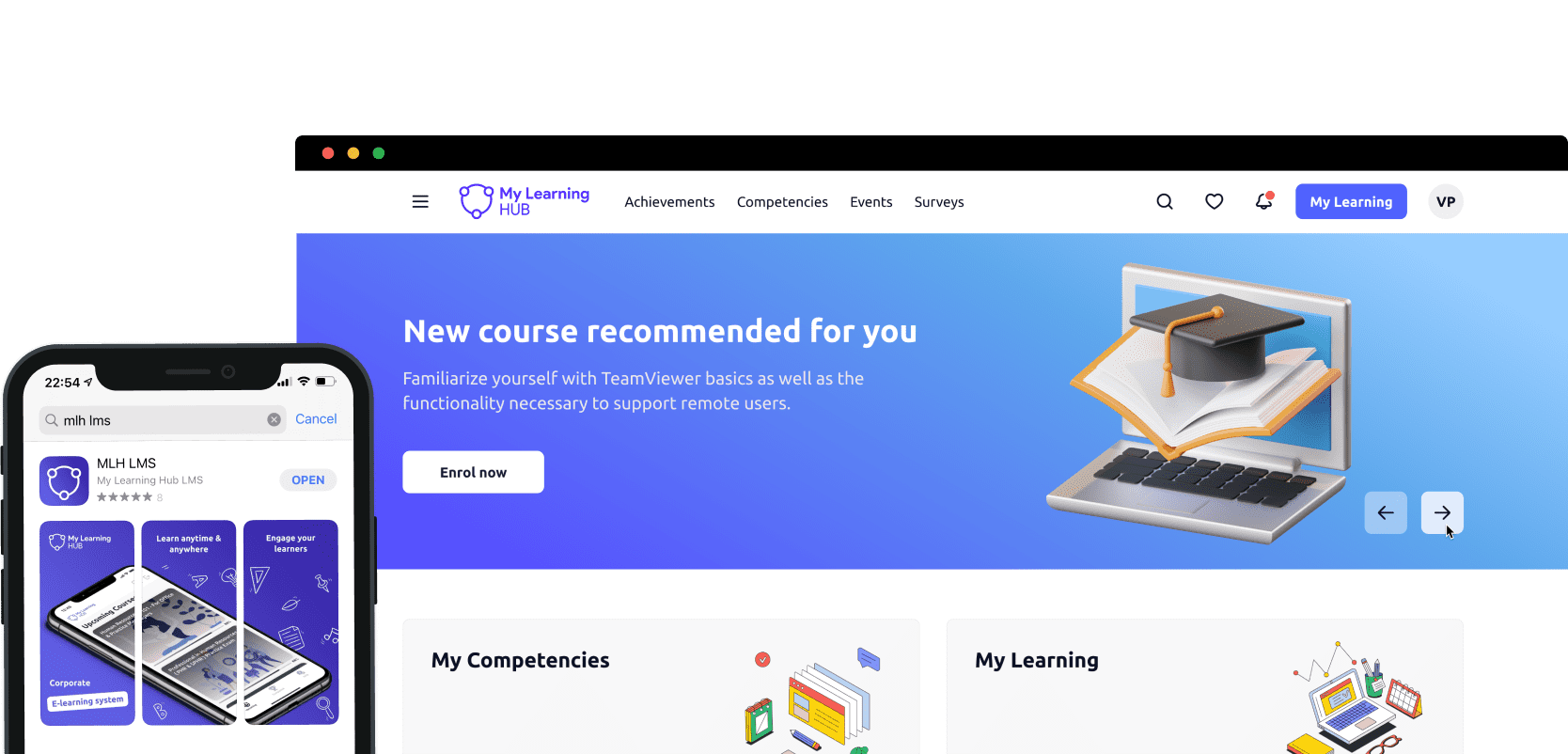
In workplaces, training has mainly turned to eLearning not only in the aftermath of the pandemic but also as the explosive impact of globalisation via digitisation. Undeniably, the pandemic fast-tracked the growth and adoption of technology applied as Software as a service (SaaS). This is evidenced by the fact that as of 2021, 90% of companies in the training industries delivered training via learning management systems (LMS). This is in sharp contrast to only 66% of Learning and Development professionals who used an LMS as of February 2020.
Beyond adopting an LMS for your company, it is pertinent to consider the gains of setting up a cloud-based learning management system solution. In the face of the rising costs of running a business and other associated burdens and complications associated with hosting your own LMS, a cloud-based learning management system provider has several advantages.
Contents
- What is a cloud-based LMS?
- Why use a cloud-based LMS?
- Cost effectiveness
- Faster set-up
- Technical maintenance
- Enhanced security
- Accessibility
What is a cloud-based LMS?
Before getting into the benefits, I probably should tell you what a cloud-based learning management system is. In a nutshell, cloud-based LMS solutions provide access to online learning materials without requiring you to carry out any hardware or software installations; basically, by hosting your eLearning materials on the web. It means that you do not need to host the learning platform of your company by yourself, nor need the requisite technology facilities or staffing to support the system.
Why use a cloud-based LMS?
Imagine reviewing a training proposal from your Chief HR Officer that a knowledge gap has been identified across the board on your teams in different regions or countries. In the past, you would probably fly someone across each location to conduct the required training. If you already have a system in place, you would set up a course online and instruct affected members to participate. Now, what happens if…
In the first instance, you can’t afford to send someone around all the locations. Or you have no one with the requisite skills on your team to provide the training.
You lack the time and resources, including physical space, technical know-how and funding required to set up an e-learning system to facilitate the need for continuous learning.
Your servers cannot accommodate the vast number of staff online at once.
The skills requirement is urgent, and there is no time available to put a course together to train staff and cover the gap.
These are only a few instances which show that an in-house cloud-based LMS solution is essential for the smooth operation of your staff training and development strategy. In other words, it isn’t enough to have an eLearning system in place; you ought to have one that is suitable and effective for the efficient operation of your company. Some core benefits of cloud-based LMS solutions include:
Cost-Effectiveness
A cloud-based LMS solution will save you the cost of hardware and associated services, including the cost of storage of the servers. It will also prevent increased demand for IT services or the need to engage specialists to set up and manage your LMS. Recurrent expenditure on subscriptions for cloud-based LMS comes to much less than the alternative of owning the LMS, equipment and all.
Faster Set-Up
Set up your LMS without having to undergo the throes of setting up an in-house LMS. Purchasing, installing and testing new servers are prerequisites at the onset of the process and take so much time prior to the commencement of the LMS. With a cloud-based system, you can focus on training your staff and developing the content and scope of your learning and development syllabus.
Technical Maintenance
With cloud-based LMS solutions, the provider bears the responsibility for technical maintenance and upgrades of hardware and software. This is guided by a service level agreement that guarantees up-time while built-in redundancy will provide resilience in the event of server failure, keeping your LMS available. This way, the burden of downtime and server failure is evaded by you, and your LMS runs efficiently.
Enhanced Security
As with other SaaS and cyber-related activities, security is a crucial consideration. Constant monitoring and upgrading cyber security software of the LMS, which is a necessity, is covered by the service level agreement with your provider. The onus and cost of doing this separately are delegated to more capable hands.
Accessibility
The frosting on subscribing to a cloud-based LMS solution is that you gain access to the LMS solution anywhere and at any time as soon as you are set up. No testing period! No incubation period! You are set to start using it. It opens up flexibility and convenience for you and your team. How great is that? You skip straight to the good part – implementing your Learning and Development plan.
So, with a cloud-based LMS solution like My Learning Hub, you have your desired LMS, a cost-effective system that is quick and easy to set up, secure and accessible from anywhere, at any time. It’s also low maintenance as the burden of maintenance is passed to the solution provider.
For further enquiries on how to implement My Learning Hub in your business, book a free demo today.
Frequently asked questions FAQ










